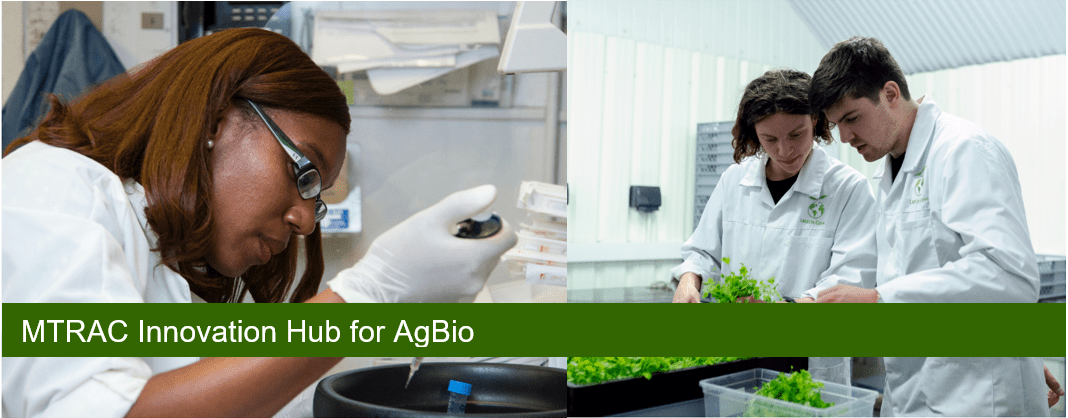MTRAC AgBio Full Award Proposals are due by 5 PM EST on Friday, November 22, 2024.
Applicant Notes:
- Applicants are strongly encouraged to contact MTRAC program staff for assistance with the preparation of their applications.
- MSU FACULTY APPLICANTS ONLY: The required e-Transmittal should be sent through the regular process to OSP with an internal sponsor named “MSU-MTRAC.”
- NON-MSU FACULTY APPLICANTS ONLY: Please contact Joseph Affholter (517.884.1824) or Weian Ou (517.884.1059) to review the Template Subcontract (PDF) before signing the MTRAC AgBio Requested Budget and Signature Page of your proposal.
Step 1: Download submission information (includes template)
Step 2: Download the Budget and Signature Form
- MTRAC FULL Budget and Signature Form – MSU Applicants
- MTRAC FULL Budget and Signature Form – Non-MSU Applicants
Step 3: Review the rubric for the initial proposal evaluation
Final: Submit your MTRAC application online
For further information or questions regarding the application process, please contact Joseph Affholter (517.884.1824) or Weian Ou (517.884.1659).
Eligibility and Information:
- Researchers will be able to apply for funding to help drive agriculture-related technology toward commercialization, including support for prototype development, animal trials, scale-up studies, crop trials, and verification studies.
- Projects must come from institutions of higher learning, hospitals & nonprofit research centers; projects must have matching funds (see detail in RFP); invention disclosure must be filed with the institution of origin; the project must be translational research.
- Projects involving already-licensed technologies are ineligible for MTRAC funding.
- Concurrent Starter and Full proposals on the same topic are not allowed. The second proposal on the same topic will not be accepted.
- Researchers can apply for funding to help drive agriculture-related technology toward commercialization, including but not limited to support for prototype development, milestone setting, animal trials, scale-up studies, crop trials, and verification studies.
- Awards range up to $125k direct cost.
- Interested investigators are asked to schedule a pre-proposal idea consultation with the MTRAC Ag Bio program.
- In all award applications, please use submission templates.

